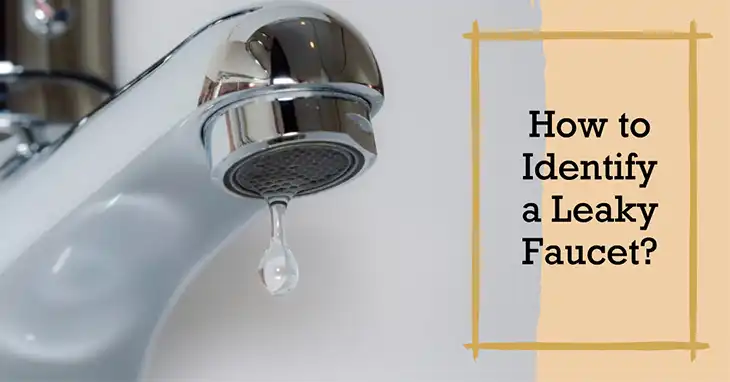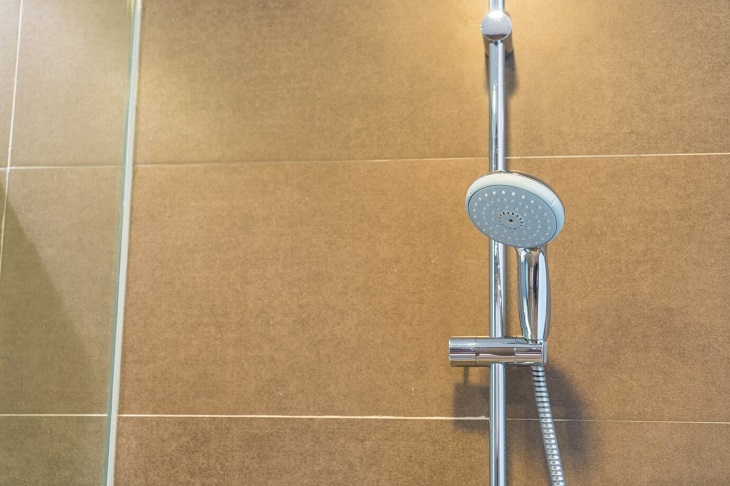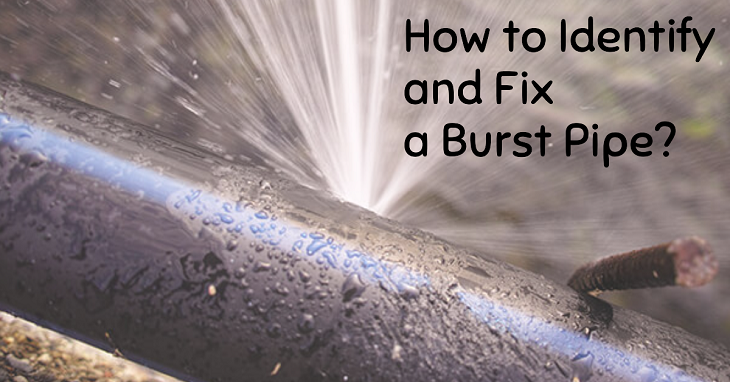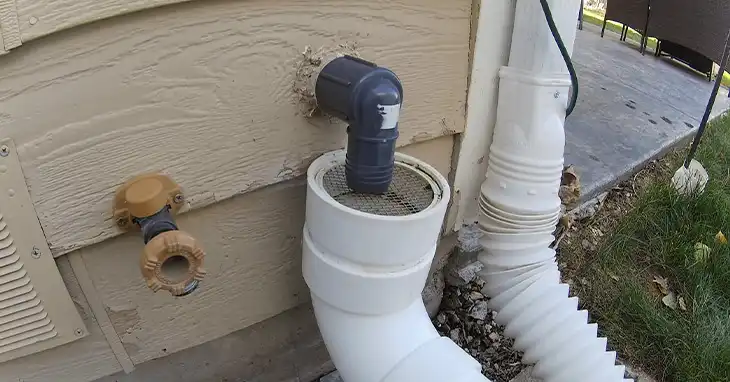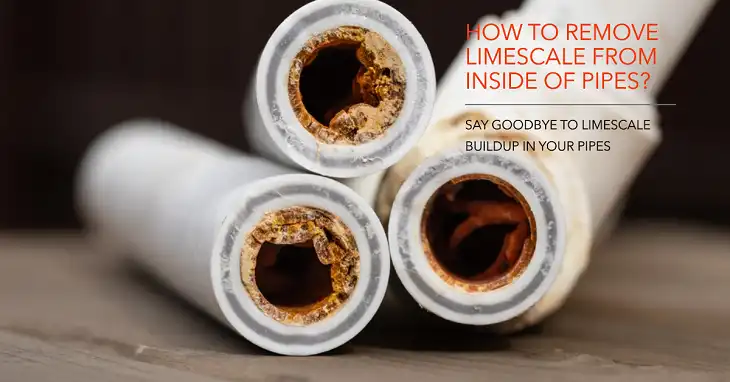Bathroom Sink Smells Like Rotten Eggs
A foul, sulfur-like smell from your bathroom sink can be unpleasant, making the space feel unhygienic. The rotten egg odor is usually due to hydrogen sulfide gas, often caused by bacterial activity in your plumbing. This gas builds up due to organic matter like soap scum, hair, or other debris that collects in the drain.
Fortunately, several effective methods can help eliminate the smell, and addressing the root causes can prevent it from returning. This article is your guide to an odor-free bathroom for better hygiene and a boosted mood.

Why Is There a Rotten Egg Smell Coming From My Bathroom?
Before diving into solutions, it’s essential to understand what could be causing the rotten egg smell:
Bacteria Growth in the Drain: Over time, soap residue, toothpaste, and hair can build up in the drain, providing an ideal breeding ground for bacteria. These bacteria can produce hydrogen sulfide, which has a characteristic rotten egg smell.
Dry P-Trap: The P-trap is a U-shaped pipe under your sink that holds water to block sewer gases from entering your bathroom. If this trap dries out, sewer gases can leak into your home, bringing that sulfurous smell.
Issues with the Water Supply: In some cases, the problem could be in the water itself. If the smell occurs in both hot and cold water, the source may be the water supply. Water with high sulfur content or contaminated by bacteria can release hydrogen sulfide when you run the tap.
How Do I Get the Rotten Egg Smell Out of My Bathroom Sink?
Now that you understand the most common causes of the odor, let’s look at practical steps to solve the issue.
1. Clean the Drain
A smelly drain is often the primary culprit when your sink smells like rotten eggs. Cleaning it thoroughly can help remove bacteria and organic buildup.
Start by pouring a cup of baking soda into the drain, followed by a cup of white vinegar.
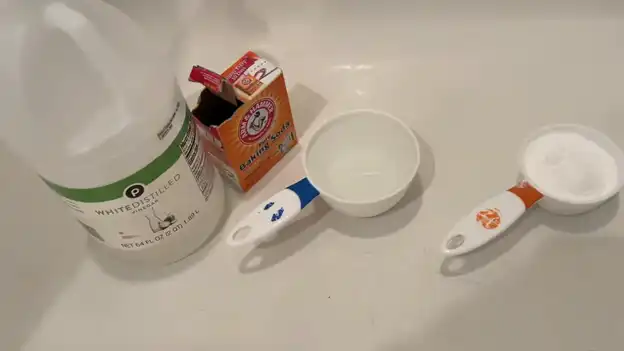
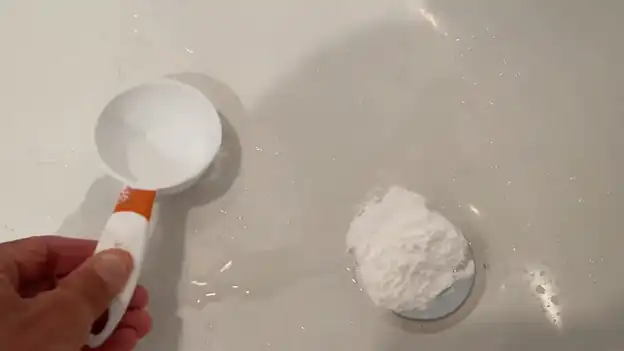
The mixture will foam, which helps break down grime and kill bacteria.
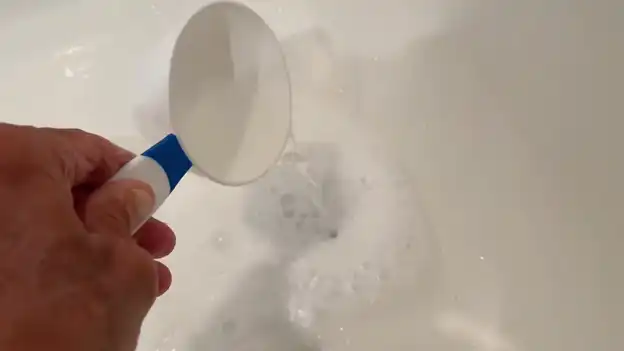
Let the solution sit for 15 to 30 minutes. Afterward, flush the drain with hot water to clear the debris.
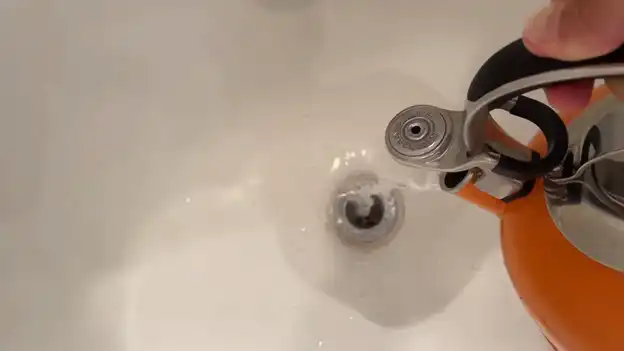
For stubborn odors, you can use a drain snake or a brush to scrub inside the drain pipe and remove trapped gunk. This will help ensure that the bacteria causing the smell are completely eradicated.
2. Refill the P-Trap
If you suspect a dry P-trap is causing the issue, refilling it is simple. Run water down the sink for about 30 seconds to a minute to restore the water barrier in the pipe. This will block sewer gases from entering your bathroom through the drain.
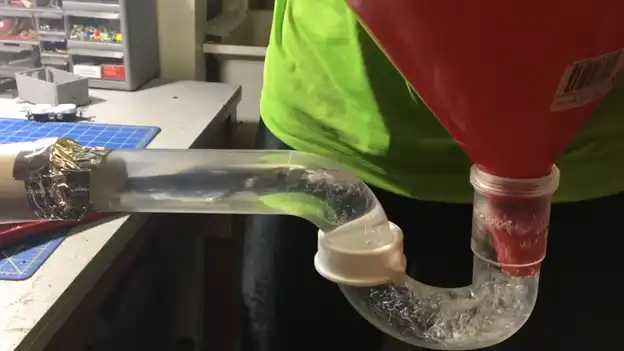
If the P-trap keeps drying out, check for leaks. A leaky P-trap might need replacing to maintain the water seal.
3. Disinfect the Overflow Drain
Many bathroom sinks have an overflow drain that prevents water from spilling if the sink fills up too much. Unfortunately, this area can also accumulate bacteria and mold, contributing to the foul odor.
To clean the overflow, mix a solution of equal parts water and vinegar and pour it into the overflow opening.
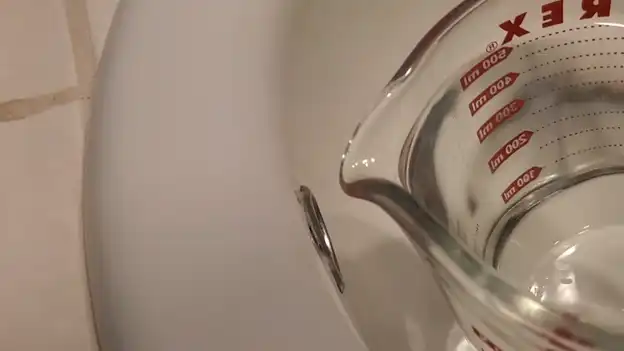
Use a small brush to scrub the area gently. Follow up by flushing it with hot water to remove loosened debris.
4. Check the Water Supply
If the rotten egg smell is coming from the water itself, rather than just the drain, you might be dealing with an issue in the water supply. Sometimes, sulfur bacteria can thrive in water heaters or within the water supply itself, causing the odor to permeate the water.
If the smell only occurs when you run hot water, the water heater may be the problem. Consider flushing the water heater to remove built-up sediment. If both the hot and cold water smells bad, you may need to contact your local water supplier to test your water quality.
How Can I Stop My Bathroom From Smelling?
Once you’ve addressed the root cause of the smell, it’s essential to maintain your plumbing system to prevent it from happening again. Regularly cleaning your drains and being mindful of what goes into them can go a long way in keeping bacteria and foul odors at bay. Here are some maintenance tips:
- Pour boiling water down the drain weekly to prevent buildup.
- Use drain strainers to catch hair and debris.
- Occasionally clean the overflow drain to avoid the accumulation of mold or bacteria.
Frequently Asked Questions
How do you fix a smelly bathroom sink drain?
If your sink has two drains, cover the one that’s not clogged. Pour one cup of baking soda down the drain, followed by one cup of vinegar. This will cause a chemical reaction.
How do I fix sewer smell in the bathroom?
The problem in cases like this is that the water in the P-trap has dried up because it hasn’t been used in a while. This has removed the barrier between your bathroom and the sewer gases. To fix this, simply run some water to refill the P-trap.
Conclusion
By following these steps and staying proactive with maintenance, you can keep your bathroom sink smelling fresh and free of the rotten egg odor. However, if you’ve tried the DIY solutions and the smell remains, it’s a good idea to call a plumber. Persistent odors may indicate a more serious plumbing issue, such as a broken pipe or contamination in the water supply.


